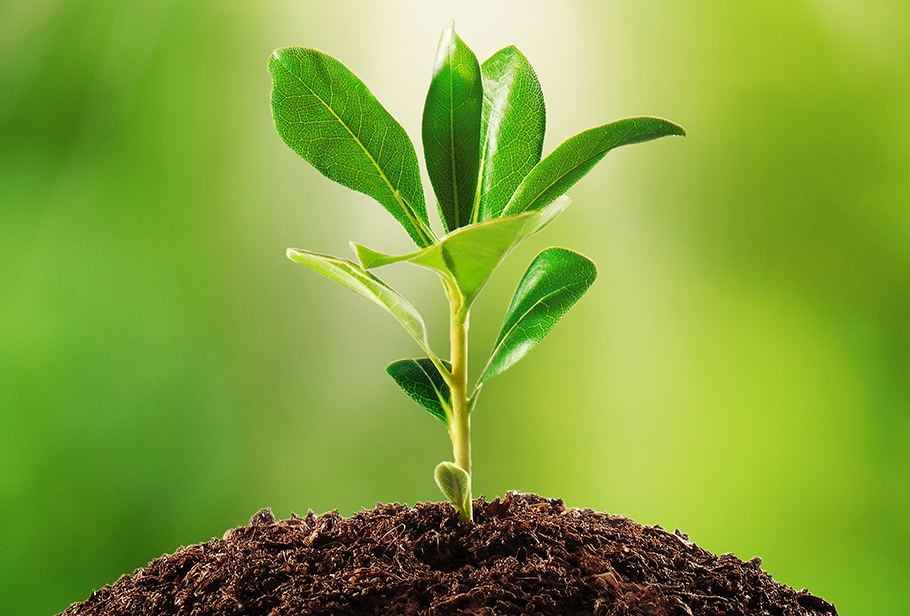Humans are at the top of the food chain. And according to us, we are the most intelligent life on Earth. But we are not the most important.
If the entire human population vanished, other plants and animals would not only continue to survive––they would thrive. Conversely, if all phytoplankton disappeared, other earthly life would suffocate, decline, and eventually disappear altogether.
Being one-upped by a microscopic marine organism is a humbling experience. It’s an idea that many would choose to ignore, because it does not line up with the exceptionalist view that humans are the be-all and end-all.
A bright future for humans requires forgetting about humans for once. Focusing on ourselves got us into this bad situation, after all.
Throughout history, Earth has gone through natural shifts in temperature and weather patterns, caused by slight variations in the Earth’s orbit, which decrease or increase the amount of solar energy our planet receives. These changes have been observed by studying tree rings, glacier lengths, ocean sediments, and other measures of climate.
Since the Industrial Revolution, humans have been the driving force behind climate change, causing unnatural patterns. According to NASA, “the current warming trend is of particular significance because it is unequivocally the result of human activity since the mid-20th century and proceeding at a rate that is unprecedented over millennia.”
Essentially, our Earth has always gone through warming and cooling cycles, but the scale and speed that Earth is warming at can only be attributed to human activity. One major cause of global warming is the burning of fossil fuels such as coal, gas and oil, which release carbon dioxide into the atmosphere.
Global warming is causing many issues worldwide, including melting glaciers, rising sea levels, increased fire threats, droughts and flooding. As a result of these climatic changes, plants are blooming earlier and some animals are migrating sooner in the year. These rising temperatures have also lowered the survival rates of many plant and animal species.
Over one million species are facing extinction by humans. This means that about one-eighth of all species on Earth are threatened with extinction due to human activities that cause pollution, shrinking habitats, and climate change. Amphibians, corals, and marine animals are facing the most risk.
If Earth continues to warm at this rate, we will also see extreme weather patterns, decreased food supply, poor air and water quality, and more disease and sickness.
If nature isn’t really your thing, it may interest you to know that prices would skyrocket as a result of these changes. We would see rising taxes, higher electrical bills, expensive home insurance, pricey food and water…almost everything with a price tag ties back to Earth.
There are obviously many negative effects of climate change, some already happening and some expected in the near future. Yet somehow, the problems accompanying climate change never seem to be the focus of our time and work.
The climate crisis has turned into a two-sided political debate, especially in the United States. This “us vs. them” mentality is only causing conflict and division and taking attention away from the problems at stake. Both political parties are at fault.
We as humans tend to make everything about money and politics––when it should be about working together to ensure a better future for ourselves, our posterity, and our Earth.
Change needs to be made at a large scale in order to mitigate the effects of climate change, including action taken by political leaders and major companies. This does not leave individuals powerless, however, and there are many things we can do each day to be better stewards of our Earth.
Let’s live in a way that if we were to disappear, we’d be missed. Let’s not let that superiority complex go to waste, because humans have the potential to make a big difference—for the better. Nature is counting on us.
Important Facts
- The average person wastes over 30 gallons of water each day. You can reduce water waste by taking shorter showers, not letting the sink run unnecessarily, installing water-efficient fixtures, minimizing lawn watering, and fixing any leaky pipes. Water can also be reused in many different ways. For example, instead of dumping your leftover pasta or potato water down the drain, use it to water your plants! (As long as it’s not salty, of course).
- Disposable plastics are especially bad for the environment, since they can’t biodegrade. Instead of purchasing single-use plastics, opt for reusable water bottles, shopping bags, etc. And when you do use plastic, make sure to reuse and recycle!
- The fast fashion industry produces 80 billion garments each year. Clothes are becoming cheaper, and of lower quality. 84% of clothes end up in landfills or incinerators. Instead of following ever-changing trends, own fewer clothing pieces, purchase high-quality clothing that will last, shop second-hand, and mend clothing to make it last longer. When clothing is worn out, repurpose it, or when it is no longer of use to you, donate it.
- Shop locally, and be aware of purchases. Make sure that your produce, seafood, meat, and other groceries come from sustainable sources. Try to purchase less meat, since the meat industry is one of the leading producers of greenhouse gasses.




